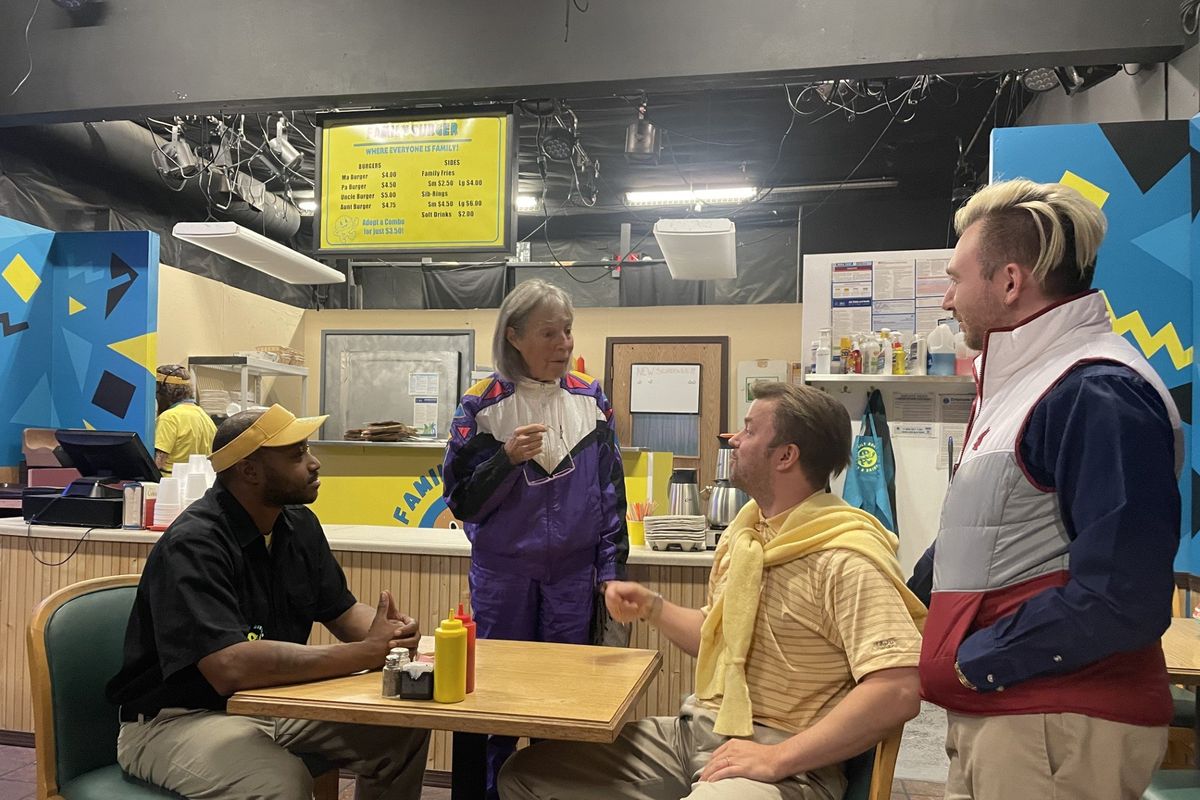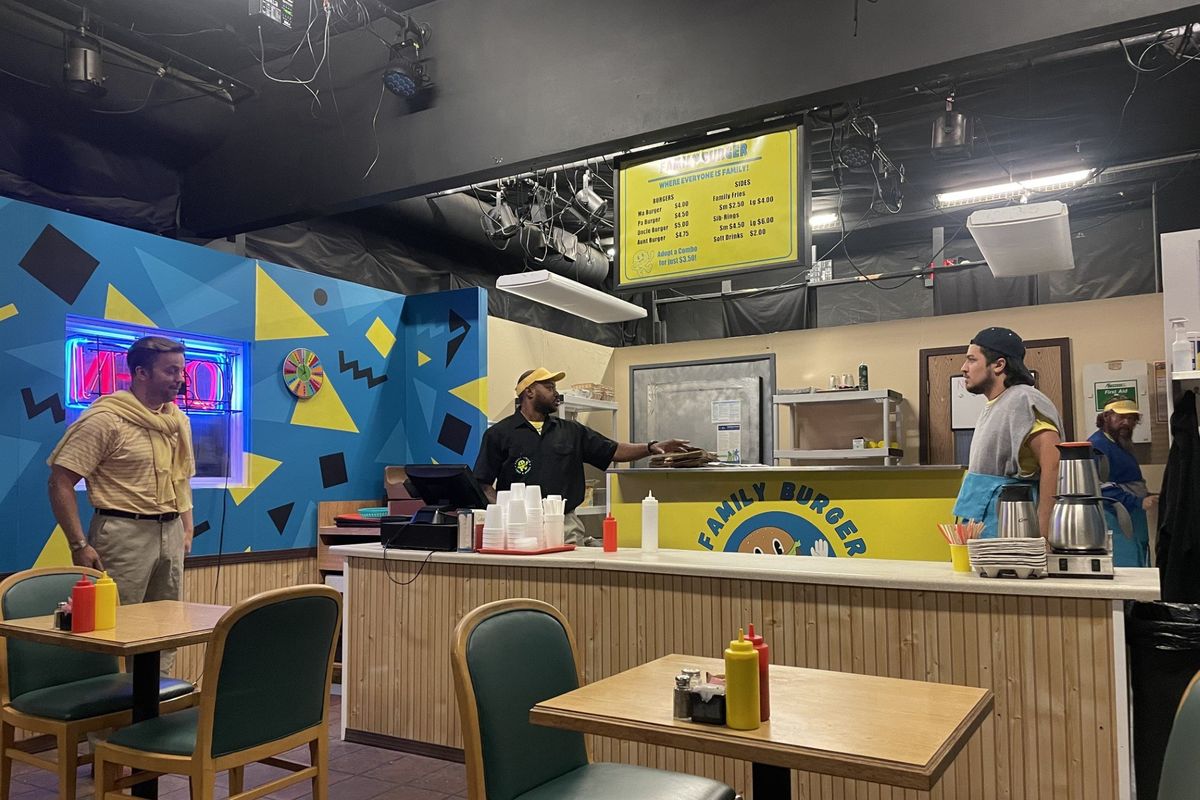Maximum reality throughout the world premiere of the compelling ‘Minimum Wage’ at Stage Left
Stage Left Theater in Spokane is hosting the world premiere of “Minimum Wage,” a new play by Spokane Valley actor and writer Dahveed Bullis. (Stage Left)
Write what you know is an old axiom that Dahveed Bullis ran with while writing the play “Minimum Wage.”
The Spokane Valley resident began his working life 20 years ago as a minimum wage employee at Wendy’s, starting at $7.35 an hour.
Bullis, 35, once struggled making minimum wage while studying theater. It’s a similar story for the protagonist of “Minimum Wage,” the play Bullis wrote and directed. The protagonist, Evan, played by Shaune Gardner, relates to the single father role written by Bullis. Gardner is part of a 10-person cast for the Stage Left show that runs Friday through Oct. 22.
“Some of the funniest and most creative people I’ve ever known worked with me in fast food,” Bullis said. “Some of my former co-workers blew me away with their humor and ingenuity.”
One of Bullis’ Wendy’s workmates fixed a leaky sink by using a tomato. “He just jammed it in there,” Bullis said. “It was hilarious.”
Part of the appeal of “Minimum Wage” is that it’s hyper local since it’s the debut of a work by an artist who has lived in the Spokane area for most of his life.
“The play has Spokane written all over it,” Bullis said. “This is the place I know and it’s based on my experiences here. This is written from the viewpoint of our city working a job many work or have worked here.”
“Minimum Wage” has comedic moments but it’s a serious piece about folks struggling to survive. “It’s not easy when you’re working a minimum wage job,” Bullis said. “You might have enough money to buy food but maybe you don’t have enough money left over to buy toilet paper or paper towels. It’s hard to pay all of the bills when you’re making minimum wage.”
The federal minimum wage is $7.25. Washington is at the top of the minimum wage state chart with $15.74 an hour. However, Bullis, who is the father of a 6-year-old son, believes that’s not enough. “The fastest way to drive hate is to put a huge financial gap between people,” Bullis said. “You can see it right here in Spokane and something should be done about it. I grew up in intense poverty with a single disabled mom in the Valley. I’ve come a long way but I can’t see myself on the South Hill or in Kendall Yards.”
“Minimum Wage” is a provocative play, which Bullis describes as 4D because the sense of smell will be part of the play. “You’ll notice the (aroma of) fried food when you walk in the theater,” Bullis said. “You’ll smell the burgers. This is a unique experience.”
Zip’s Drive In is Bullis’ favorite fast food. “I like the local fast food,” Bullis said. “It’s the heartbeat of our city. I still like Wendy’s. I enjoyed working there.”
Bullis misses some of his old customers, many of whom were regulars. “There were many people that came in at the same time, every day,” Bullis said. “I would see them walk in and I would take care of their orders since I knew what they wanted before they said a word. There was this woman who came in regularly to Taco Time and asked for the same nacho order. Some time passed and she didn’t come in. We didn’t know what was going on. Her daughters came in (after she passed away) and asked what she ordered. They went through her receipts and saw she went to our Taco Time. They had the nachos she ordered and they reconnected with their mother in that manner.”
Bullis loathes the stigma those who work at fast food restaurants are tagged with as if they sport a scarlet letter. “What I hate is when people say, ‘If you don’t go to college, you’ll be flipping burgers,’ ” Bullis said. “For some people that become fast food managers it’s a success story. Maybe they sold drugs and their life was off the rails. Working fast food is not a destination for failure, it’s just a destination.”

